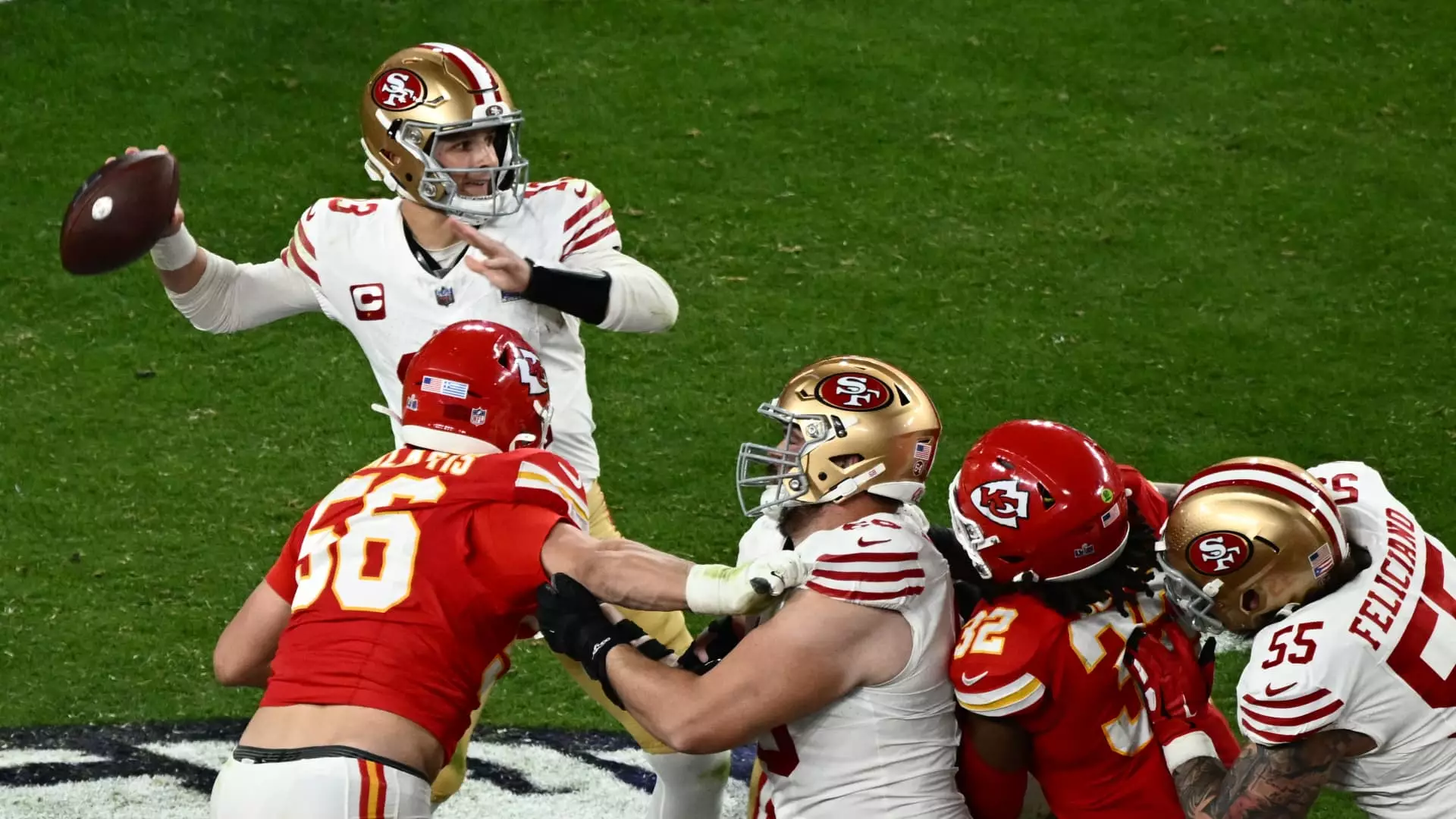In the competitive world of professional sports, accurately evaluating talent is critical yet infamously challenging. The San Francisco 49ers, a storied NFL franchise, are confronting this issue head-on, particularly in light of the remarkable journey of their quarterback, Brock Purdy. Purdy’s ascent from being the last pick in the 2022 NFL Draft to leading his team to the Super Bowl raises questions about current scouting methodologies and highlights the potential for innovation in player evaluations.
Brock Purdy exemplifies a flawed player evaluation system within football. Drafted 262nd overall, Purdy’s selection reflects a failure to recognize critical quarterbacking traits. Despite impressive performances, scouting reports overlooked skills and intangibles that contribute to his success. The implications of his rise are profound: purging the emphasis on outdated metrics and traditional scouting can potentially lead organizations to miss valuable talents who don’t fit the mold.
Guido, the team president, has acknowledged this gap and is pushing for an overhaul in evaluation processes. His belief in integrating advanced statistics into scouting could usher in a new era of talent identification, one that relies less on conventional wisdom and more on data-driven analysis.
The notion of employing artificial intelligence to enhance player evaluation has captured the attention of sports franchises, including the 49ers. AI could provide deeper insights, analyzing vast amounts of game data to identify hidden skills and assessing player potential beyond traditional scouting reports. This technology could prove particularly beneficial for sports like soccer, which operates on a different global scale, and offers an array of competition levels that complicate the scouting process.
Al Guido expressed the complexities of evaluating soccer players, acknowledging that talented athletes can emerge from unlikely backgrounds and geographies. Hence, the 49ers are exploring AI’s potential to amalgamate data with intuitive understanding, providing a multidimensional view of what makes a player excel.
The future of talent evaluation may very well hinge on the successful combination of traditional scouting methods with advanced analytics. Marrying the wisdom of seasoned scouts with cutting-edge data analysis entails a comprehensive approach to identifying what constitutes a successful player. For the 49ers, this philosophy is already becoming integral to their operation, particularly as they face the upcoming task of negotiating a contract extension for Purdy.
As sports continue to evolve and adapt, teams like the San Francisco 49ers are at the forefront, demonstrating the potential to reshape talent assessment. By embracing innovative technologies and methodologies, franchises can hope to minimize the risk of overlooking burgeoning talent, ultimately leading to greater success on the field, and more compelling narratives like that of Brock Purdy’s inspiring journey. The lessons learned from this evolution could transform the landscape of sports forever.

